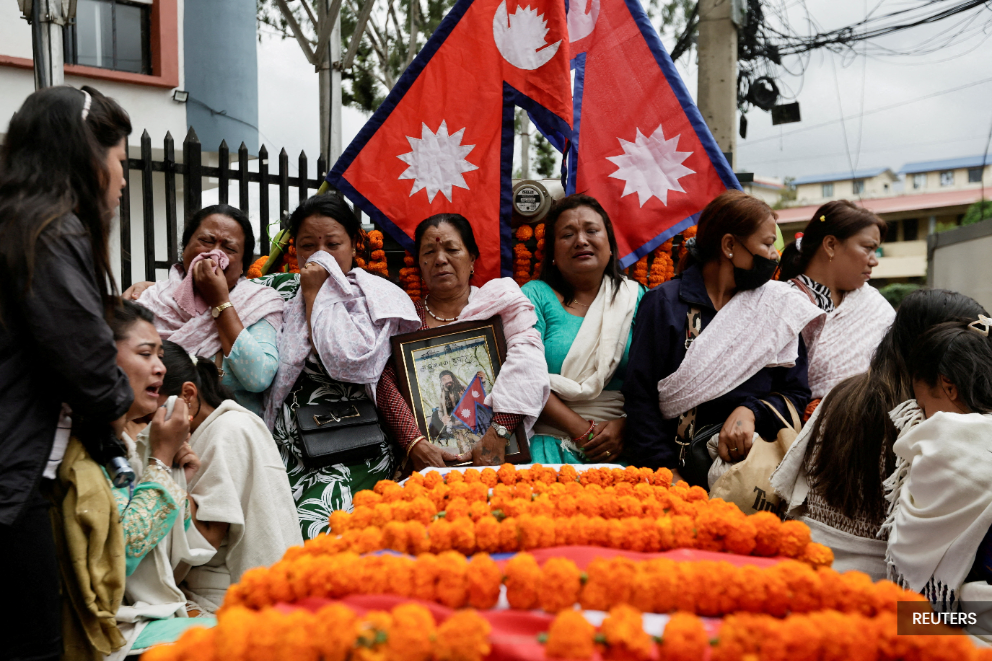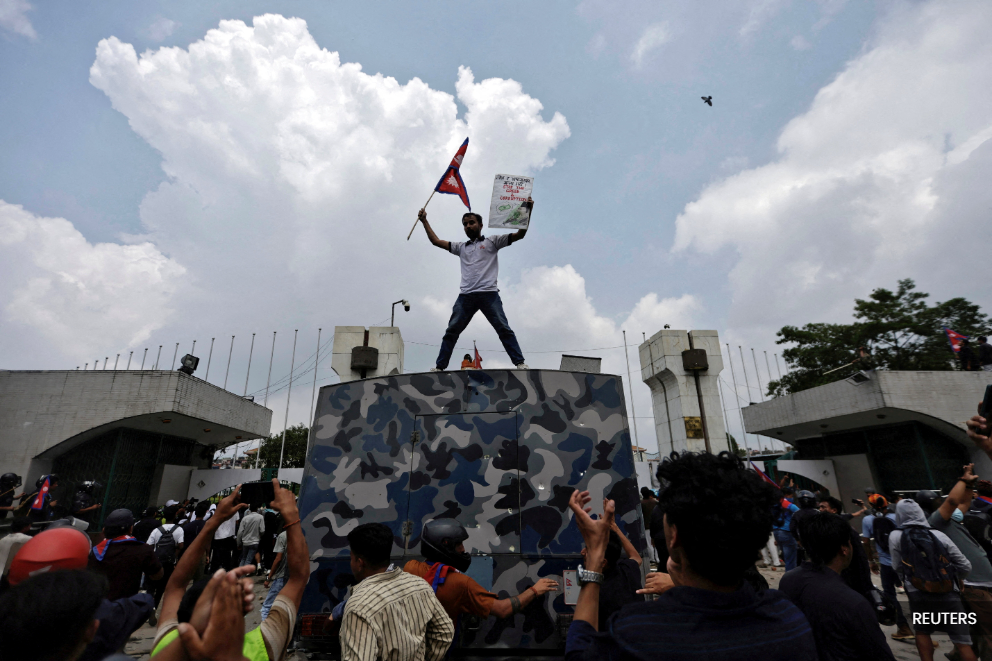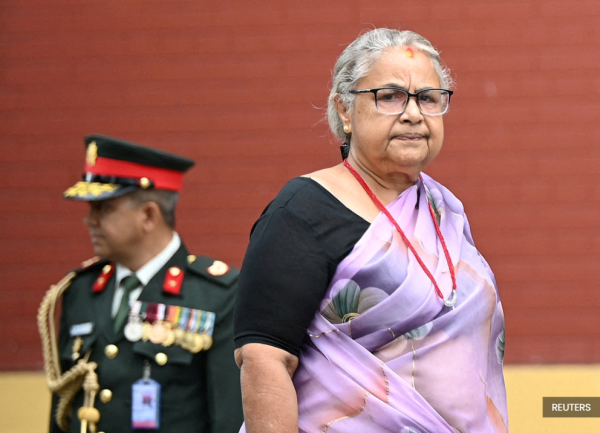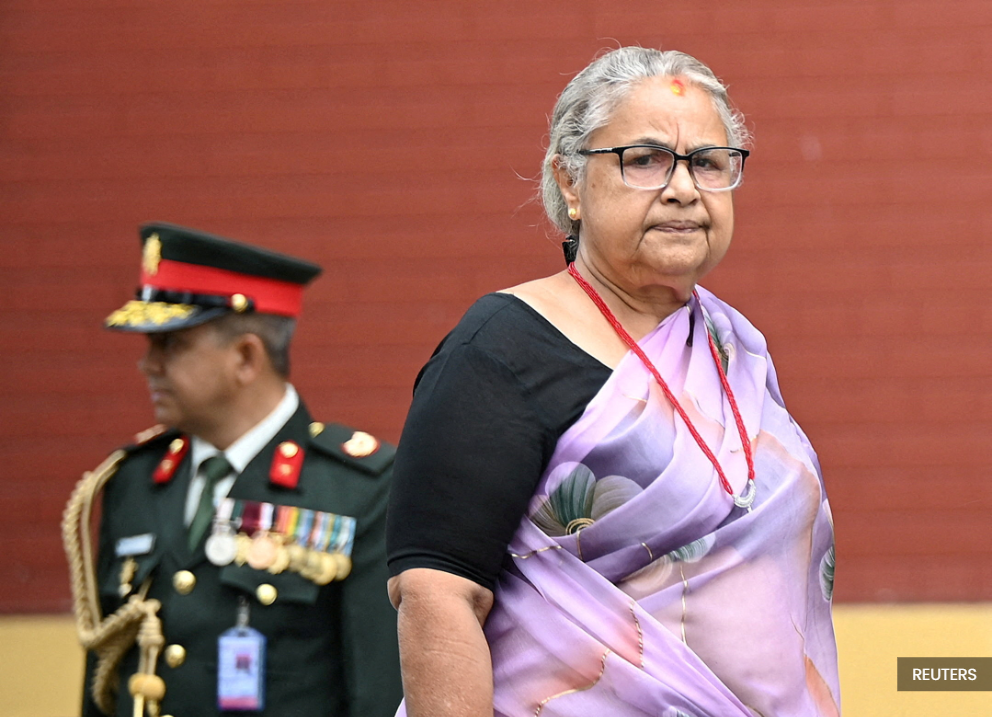KATHMANDU, Sept 23 — Chosen for her integrity after deadly anti-graft protests, Nepal's interim Prime Minister Sushila Karki now faces her toughest challenge: to meet the demands of the protesters who toppled her predecessor and deliver elections in six months.
The 'Gen Z' demonstrators want the 73-year-old premier to arrest senior party leaders accused of graft, remove politically-connected bureaucrats from key posts, and investigate the deaths of 74 people during this month's protests.
While they support Karki, who showed zero tolerance for corruption as Nepal's first female chief justice, they are also impatient for results.
In a social media post earlier this week, Sudan Gurung, who has emerged as the 'Gen Z' group's representative, supported calls for the "immediate arrest" of ministers in the recently overthrown government of Khadga Prasad Sharma Oli.
"We mainly expect her (Karki) to fight corruption. She is our mother and we believe she will protect us," the 36-year old Gurung, founder of non-profit organisation Hami Nepal, told Reuters.
Nepal ranked 107 of 180 countries in Transparency International's 2024 Corruption Perceptions Index.
Reuters could not reach Karki on her mobile, and messages to her phone remained unanswered.
The protests began after Oli's government announced a ban on social media. While initially peaceful, the rallies spiralled out of control on September 8, and in just over 28 hours, the government had collapsed.
As well as dozens of deaths, more than 2,000 people were injured as protesters targeted government buildings and businesses believed to be connected to the previous government.
"There is no room to fail ... and six months is a good amount of time," Gurung said. Gurung threatened to bring down Karki's government too if the group's demands were not met.
Karki has already begun to act.
She has promised an anti-corruption committee and formed a panel to investigate the attacks on the protesters.
But experts warned that Karki would need to tread carefully against powerful leaders like Oli, who remains president of the Communist Party of Nepal (Unified Marxist-Leninist), which maintains a strong support base in the country.
"There is a possibility of another uprising from the traditional political parties that are blamed for mismanagement," said former Army general Binoj Basnet, who is now an independent analyst.
Other political experts said Nepal was at a turning point similar to when the Maoist movement overthrew the monarchy in 2008, following more than a decade of unrest that left the government unstable and the economy weak.
Nepal has had 14 governments since, with repeated uprisings fuelled by stark income inequality and youth unemployment at more than 20 per cent. A third of its young population — mostly in their twenties — have left the country for work.
There is also little inspiration for Karki from a similar uprising in Bangladesh, where Nobel laureate Muhammad Yunus faces sporadic protests even as he attempts to guide the country through a fragile transition before holding a general election.
"If the Karki experiment does not work and is unable to successfully lay a path for the next credible government, then the risk is that the country could be thrown into another decade of unrest," said independent analyst Puranjan Acharya, who worked as a government adviser in the 1990s.

Karki's challenges
Amid a political crisis, she also has to fix Nepal's US$43 billion (RM180.54 billion) economy, which has been hit by a drop in tourism and investment sentiment since the protests.
Fitch Ratings said "a period of extended political stress" would raise risks for the sovereign credit profile of the Himalayan nation, as it dampens economic activity and near-term growth prospects.
Karki's government has said it plans to hold an election on March 5 next year, although analysts say that could be extended by another six months.
They say she will have to give the unorganised youth time to figure out their leadership, while the Nepali Congress and the Communist Party-UML, which have dominated the country's politics for decades, need time to identify candidates untainted by graft allegations.
"This movement is all about corruption. So leaders like Oli, and Sher Bahadur Deuba (Nepali Congress President) and their close aides will not fight elections," Acharya said, adding that the parties will have to find new faces.
Youth leader Gurung is mulling the formation of a new youth-based party, emphasising that elections need to be fair for all sides to accept the results and avoid more protests.
"The next elections will be a generational clash of old versus the new," Acharya said.



